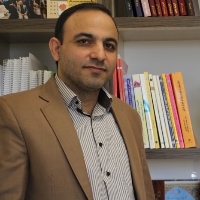Filial Therapy: Goals, features and application
Filial Therapy (FT) is a style of play therapy that uses parental play as a tool to treat childrenchr('39')s problems. This style of therapy, which is a combination of different approaches such as psychodynamic, humanistic, behavioral, cognitive theory, and the developmental theory of attachment and family system, encourages parents and children to express their feelings during the game in a desirable way. The aim of this study was to introduce and review the history, goals, and characteristics of Filial Therapy and providing research evidence on its effectiveness and benefits for a range of problems in children. The study method is descriptive and the articles of reputable scientific databases have been used to collect information. The results of the descriptive study and analysis of the research showed that the Filial Therapy intervention program reduces parental stress, improves parent-child interaction, reduces behavioral problems and anxiety, and improves social skills and behaviors. As a result, Filial Therapy can be used as an effective intervention in improving childrenchr('39')s behavioral and social problems. Also, it can use to repair parent-child relationships.
-
The Effectiveness of Unified Transdiagnostic Treatment on the Internalized Problems of Children with Emotional Divorced Parents
Mahsa Mohammad Rajabi, Fariba Yazdkhasti *, Hamidreza Oreyzi, Ahmad Abedi
Journal of Applied Psycology Research, -
The Effect of Incredible Years Program Training on Behavioral Emotion Regulation in Mothers of Children with Autism
Farzaneh Safarpour, *
Modern psychological research, -
Meta-Analysis of Positive Psychotherapy Interventions for Parents of Children with Special Needs in Iran
Sayed Hossein Siadati Arani, *
Applied Family Therapy Journal, Winter 2024 -
Social Development in Gifted Children: Challenges and Opportunities
Ahmad Abedi *
Psychological Research in Individuals with Exceptional Needs, Summer 2023



